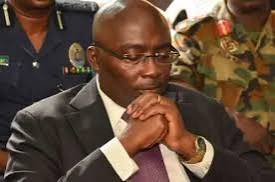Solomon Owusu, a prominent member of the Movement for Change, has made serious accusations regarding the ownership of Hubtel Ghana, claiming that it is linked to Dr. Mahamudu Bawumia. In a video that has gone viral, Owusu alleged that Dr. Bawumia acts as a middleman for the Electricity Company of Ghana (ECG) in the collection of revenue.
According to Owusu, the payments made by consumers do not go directly to ECG; instead, they are funneled through a company called Hubtel. He stated, “The money we pay does not go to ECG directly; it goes to Hubtel. Ask whether Hubtel does not belong to Bawumia.†He further explained that Hubtel collects the revenue before passing it on to ECG, taking a percentage of the funds in the process. This arrangement raises significant questions about transparency and accountability in the management of electricity revenues in Ghana.
Owusu also alleged that Hubtel is involved in managing the country’s electricity meters, suggesting that they have considerable control over these vital resources. He expressed concerns that Hubtel could manipulate the system to their advantage, saying, “They do whatever they want with it.†This claim highlights a perceived lack of oversight and raises alarms about the potential for abuse within the system.
In his comments, Solomon Owusu contended that the ECG had developed an internal app to improve their services but faced obstacles due to what he described as “corruption and greed.†He accused the ECG of failing to add features such as Visa payment options, which would have made transactions easier for Ghanaians. Instead of enhancing their existing system, he claimed that the ECG has now contracted Hubtel to handle these functions, further entrenching the company’s influence in the revenue collection process.
The implications of Owusu’s allegations are significant, as they raise questions about the integrity of the revenue collection system in Ghana. If true, these claims could indicate a troubling trend of privatization and mismanagement of public resources. The idea that a private entity such as Hubtel, allegedly linked to a high-ranking official, is profiting from public funds is likely to provoke public outrage and demands for accountability.
As the controversy unfolds, it remains to be seen how the government and the ECG will respond to these allegations. There is an urgent need for clarity regarding the relationships between public utilities, private companies, and government officials. The public deserves assurance that their payments are being managed transparently and that their interests are being protected. Solomon Owusu’s revelations may spark further investigations and discussions about the governance of utility services in Ghana, emphasizing the importance of ethical practices and accountability in public administration.




No comments yet
Be the first to share your thoughts!